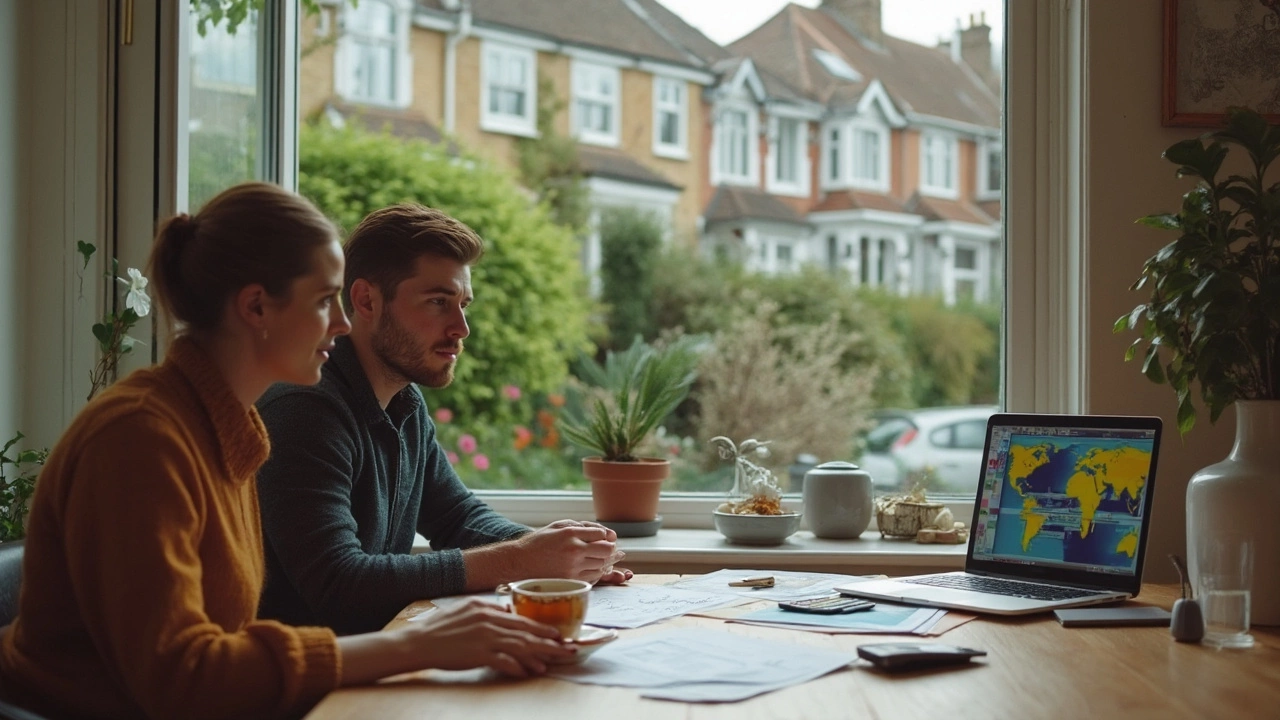House Deposit Basics: What You Need to Know Before Buying
Thinking about buying a home? The first big question is usually: how much do I need to put down? In the UK, most lenders expect a deposit of 5% to 20% of the purchase price. That means a £250,000 house could need anywhere from £12,500 to £50,000.
Why does the deposit matter? A bigger deposit usually means a lower interest rate, smaller monthly payments, and a better chance of getting a mortgage approved. If your deposit is on the low side, you might face higher fees or stricter credit checks.
How to Figure Out Your Ideal Deposit
Start by checking the price range of homes you like. Multiply that number by the deposit percentage you’re comfortable with. For example, if you’re eyeing a £180,000 property and can save 10%, you’ll need £18,000. Add a buffer for extra costs like stamp duty, legal fees, and moving expenses – typically another 2% to 3% of the purchase price.
Use an online mortgage calculator to see how different deposit amounts affect your monthly payment. Seeing the numbers side‑by‑side helps you decide if stretching for a larger deposit makes sense.
Practical Ways to Build Your Deposit Faster
1. Set a clear goal: write down the exact amount you need and the date you want to reach it. A concrete target makes saving feel real.
2. Automate your savings. Set up a standing order that moves a fixed amount from your current account to a high‑interest savings account each payday.
3. Cut non‑essential spend. Swap pricey coffee runs for homemade brews, pause subscription services you rarely use, and track every expense for a month.
4. Use government schemes. The Help to Buy Equity Loan and Lifetime ISA can add up to £25,000 toward your deposit if you meet the criteria.
5. Boost income temporarily. Consider freelance gigs, part‑time work, or selling items you no longer need. Put every extra pound straight into your deposit fund.
6. Keep your credit healthy. Paying down credit cards and avoiding new debt helps you qualify for a better mortgage rate, which in turn reduces the total amount you’ll need to borrow.
Remember, the goal isn’t just to hit a number – it’s to feel confident that you can afford the mortgage once you own the home. A solid deposit reduces monthly stress and gives you more negotiating power with sellers.
When you’re ready, talk to a mortgage adviser. They can check which lenders accept lower deposits, explain any government assistance you qualify for, and walk you through the application process. The right adviser can save you time, money, and a lot of headaches.
Bottom line: figure out the exact deposit you need, set up a simple savings plan, and explore every boost option available. With a clear target and disciplined saving, your house deposit will feel within reach sooner than you think.

Minimum Down Payment on a House: What First-Time Buyers Need to Know
Trying to figure out what you’ll need for a down payment when buying your first house? This article breaks down the numbers, compares loan types, and clears up myths about minimum down payments. You'll get real tips on saving for your deposit, how your credit score matters, and what to expect in 2025. Straightforward facts, no jargon—just the info you need to kickstart your home buying journey.